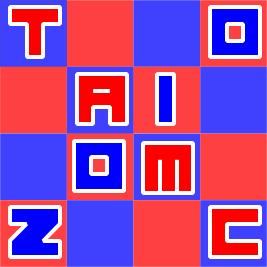Invited Speakers:
- John E. Hopcroft (Cornell University, Ithaca, USA)
- Shang-Hua Teng (University of South California, Los Angeles, USA)
John E. Hopcroft is the IBM Professor of Engineering and
Applied Mathematics in Computer Science at Cornell University.
From January 1994 until June 2001, he was the Joseph Silbert Dean
of Engineering. After receiving both his M.S. (1962) and Ph.D. (1964)
in electrical engineering from Stanford University,
he spent three years on the faculty of Princeton University.
He joined the Cornell faculty in 1967, was named professor in 1972
and the Joseph C. Ford Professor of Computer Science in 1985.
He served as chairman of the Department of Computer Science
from 1987 to 1992 and was the associate dean for college affairs in 1993.
An undergraduate alumnus of Seattle University, Hopcroft was honored
with a Doctor of Humanities Degree, Honoris Causa, in 1990.
Hopcroft's research centers on theoretical aspects of computing,
especially analysis of algorithms, automata theory, and graph algorithms.
He has coauthored four books on formal languages and algorithms
with Jeffrey D. Ullman and Alfred V. Aho.
His most recent work is on the study of information capture and access.
He was honored with the A. M. Turing Award in 1986.
He is a member of the National Academy of Sciences (NAS),
the National Academy of Engineering (NAE) and a fellow of
the American Academy of Arts and Sciences (AAAS),
the American Association for the Advancement of Science,
the Institute of Electrical and Electronics Engineers (IEEE),
and the Association of Computing Machinery (ACM).
In 1992, he was appointed by President Bush to the National
Science Board (NSB), which oversees the National Science Foundation (NSF),
and served through May 1998. From 1995-98,
Hopcroft served on the National Research Council's Commission
on Physical Sciences, Mathematics, and Applications.
In addition to these appointments, Hopcroft serves as a member of
the Scientific Advisory Committee for the David and Lucile Packard
Fellowships in Science and Engineering, the SIAM financial management
committee, IIIT New Delhi advisory board, Microsoft's technical
advisory board for research Asia, the Engineering Advisory Board,
Seattle University, and the program committee for Chile Millennium
Science Initiative.
Shang-Hua Teng is now a full professor in the Computer Science Department at Boston University and also a senior research scientist at Akamai Technologies Inc. He taught as a faculty in the Department of Mathematics of MIT and in the Computer Science Departments of the University of Minnesota and UIUC. He has worked and consulted for IBM Almaden Research Center, Intel Corporation, Xerox PARC, Cray Research/SGI, Thinking Machine Corporation, and NASA Ames Research Center. He is an Alfred P. Sloan Fellow, winner of Senior Xerox Award for Outstanding Faculty Research (UIUC), and has received NSF Faculty Early Career Development Award. Teng received a B.S. degree in computer science and a B.A. degree in electrical engineering from Shanghai Jiao Tong University in 1985, a M.S. degree in computer science from University of Southern California (USC) in 1988, and a Ph.D. degree in computer science from Carnegie Mellon University (CMU) in 1991. With Dan Spielman of MIT, he developed the theory of Smoothed Analysis for modeling and analyzing practical algorithms, and had demonstrated that the simplex method for linear programming has a polynomial smoothed complexity. This joint work was cited by National Science Foundation in its FY'03 budget request to Congress. His research centers on the design and analysis of efficient algorithms. His recent interests include computational game theory, spectral graph theory and its applications in optimization and information processing, parallel scientific computing, computational geometry, graph partitioning and clustering, and cryptography. He has also received more than ten US Patents for his work on compiler optimization and Internet technology.

